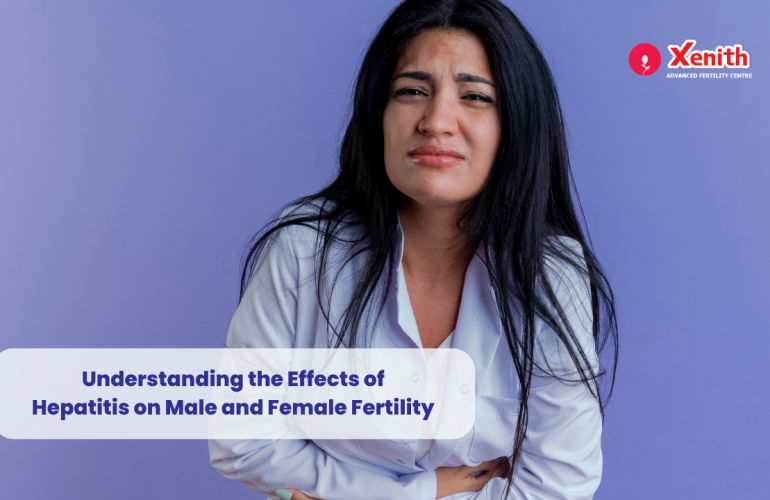If you have been trying for a year to conceive and have been unsuccessful, chances are you might be dealing with infertility and your doctor might recommend going through in vitro fertilization (IVF) in order to have a baby. If you have decided to go this route, you will want to know all about IVF and how to increase your chances of making this IVF procedure successful.
What is IVF?
Preparing for IVF actually could begin months before the actual IVF procedure where you meet with your specialist who will look at your medical history and do some preliminary screening to decide how to ensure that you receive the best chance of success in your IVF treatment. Ovarian stimulation will begin around the first day of your menstrual cycle and the doctor will prescribe the right balance of hormones and medications for your specific circumstances so that several eggs will mature simultaneously at the same time. Once the eggs have grown to a specific size, they are ready to be retrieved and you will be given a trigger shot to help your body release the eggs and make it easier for the doctor to retrieve them. After about 36 hours, you will need to go to the clinic and the eggs will be removed under guidance of ultrasound and under sedation. This is a short 15 minute procedure and most people won’t feel any discomfort. At the same time, the semen sample will need to be given for washing and concentrating the sperm. The sperm will be tested for motility, quality and quantity. The healthy sperm and eggs will be placed in a petri dish and incubated for natural fertilization to occur. They might use intracytoplasmic sperm injection (ICSI) where one sperm is injected directly into the egg for fertilization. Once the sperm and egg have combined to form an embryo, they will be monitored closely to view its development. Assisted hatching might be done where a small incision in the embryo shell could increase the chances of implantation. Preimplantation genetic testing might also be carried out to check for any genetic anomalies or diseases. The viable embryos can then be transferred back into the uterus for implantation after 2 to 5 days from egg retrieval. This procedure involves carefully injecting the embryo under ultrasound guidance using a soft, flexible tube into the uterus. After about 12 days, you will need to do a blood test and visit your doctor to see if you are indeed pregnant.
How to increase your chances of IVF success
There are many things in the IVF treatment that you have no control over. However, there are certain changes you can make in your own life to increase the chances of IVF success.
- Lifestyle changes- Studies have shown that being obese or underweight can decrease your chances of getting pregnant. (1) You might need higher doses of medication and might decrease chances of implantation as well as increase chances of miscarriage. So it’s important to maintain a healthy weight.
Healthy weight could be achieved through diet changes and exercise. You need to eat a well-balanced, nutritious diet where you are getting all the nutrients, minerals and vitamins that are needed to conceive and stay pregnant. The Mediterranean diet may improve your health and try following it 6 months prior to IVF treatment. (2) It includes eating various fruits, vegetables, whole grains, legumes, nuts, seeds, chicken and fish. Avoid processed foods as well as refined sugars, bakery items, fried foods, junk foods, decrease caffeine consumption, drink lots of water. After embryo transfer, continue eating healthy. Avoid smoking, drinking too much alcohol and certain chemicals like nail polish, certain cremes, pesticides, and other items that may decrease chances of pregnancy. Do regular, moderate exercise like walking, light yoga, but don’t do intense activity while you are going through IVF treatment. It’s recommended that the man refrain from ejaculation 3 to 4 days before sperm collection. Speak to your doctor to find out what’s best for your body.
- Find a great doctor and clinic– Look at the doctor’s credentials and the success rates of the clinic. Do they use the newest technology and possess all the proper equipment for getting everything done at the clinic itself? Also look for a doctor who you feel you can connect with. Its important that you are understood and feel comfortable asking any questions you might have.
- Take the proper vitamins and supplements- take folic acid at least 3 months before conception since it’s vital for proper development of the spine and nervous system as well as preventing neural tube defects of the baby. Also take Vitamin D if your levels are low, along with B12, C, E vitamins, zinc, selenium, and coenzyme Q10. (3) Coenzyme Q10 has been said to improve oocyte quality. Just keep in mind that it may take up to 60 days for any nutritional changes you make to have an impact on your success rate. After embryo transfer, continue taking folic acid, zinc and other supplements/vitamins. Speak to your doctor about any supplements and vitamins you are considering taking and it is beneficial for both the man and woman.
- Decrease your stress levels- It might seem to be easier said than done when dealing with infertility and going through IVF treatment. But stress can negatively influence your success rate for IVF. Because your mind can be a powerful tool, try stress relieving techniques like acupuncture and learn how to calm your mind. During your embryo transfer and also during the 2 week nail biting wait to find out if you are pregnant, try to be very calm, think positive thoughts and do activities that relax you and keep you occupied. You may also want to practice meditation, journaling, listen to music or other techniques to help you de-stress and unwind. Try to scale back on commitments and try to be flexible during your IVF treatment because IVF schedules can be constantly changing depending on the results of the blood test and previous scan. Try not to blame yourself or worry about the what ifs. Reducing your stress levels promotes an optimal environment for pregnancy to occur. (4)
- Get enough sleep- Study indicates that individuals who sleep 7-8 hours every night have a higher chance of success through IVF. Sleep can be very restorative and during this time, repair takes place throughout the body, amongst other processes, and it can contribute to a healthy pregnancy. (5)
- Have a support group- Try to have a support system around you, if you feel overwhelmed or feel anxious, whether it’s your partner, close friend or family. There are also IVF support groups or professional counselors who may help you through difficult circumstances. (6)
Each individual is different and is dealing with various issues whether it be physical or mental. To optimize success for IVF procedure, it’s important that you take a hard look at yourself and listen to your specialist about how to achieve a successful conception and pregnancy through IVF. The staff and specialist at Xenith Advanced Fertility Centre are very caring and want to truly help you achieve your dreams of having a baby. They are also extremely knowledgeable and have a lot of experience in dealing with all sorts of issues with infertility to help you increase the chances of IVF success.




